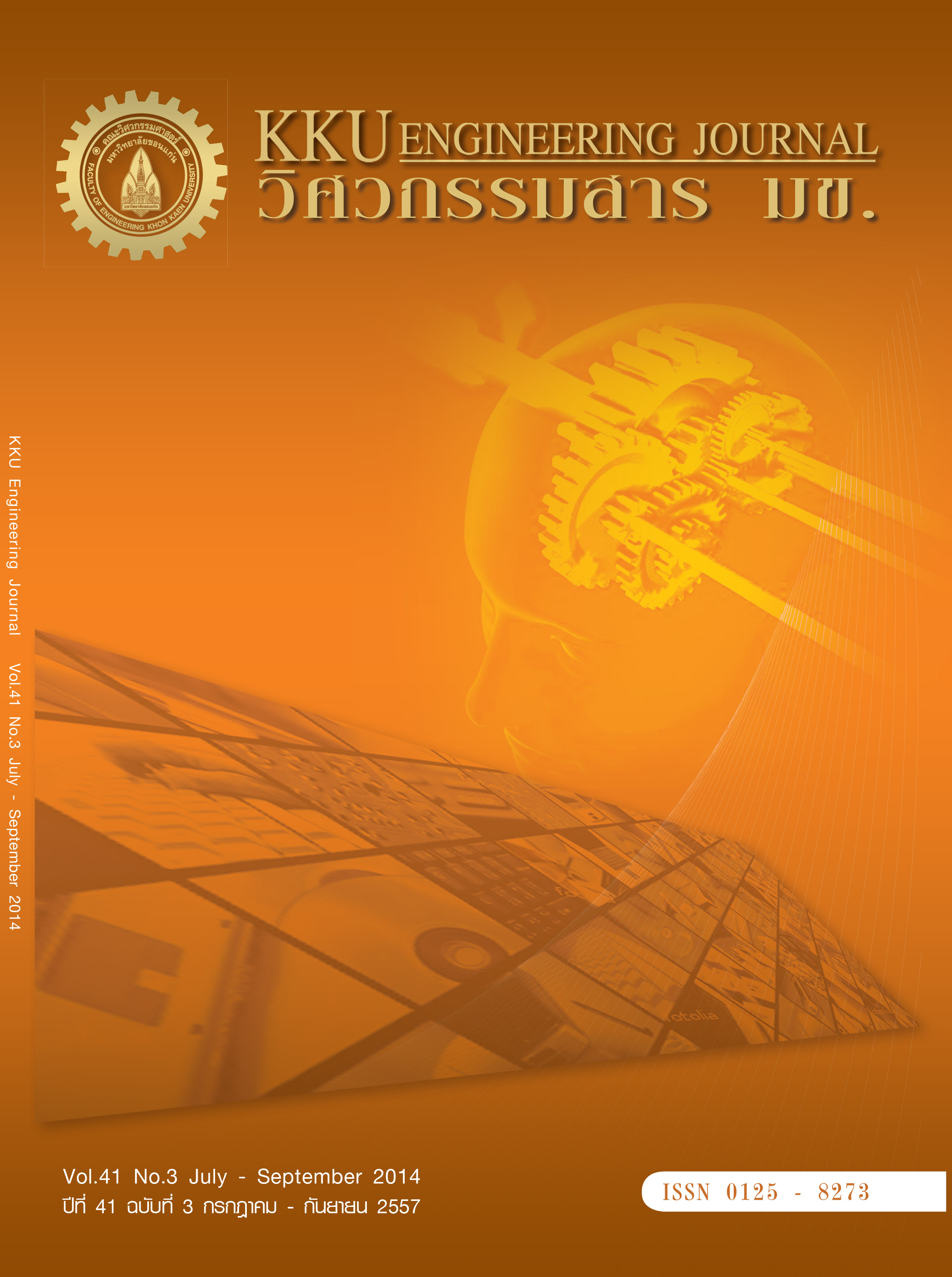Reduction of adhesive stain defect in flexible printed circuit board on hot pressing process: a case study of electronic component factory
Main Article Content
Abstract
The objective of this research is a reduction of an adhesive stain defect in flexible printed circuit board in hot
pressing process, the electronic factory. The manufacturing have been processing by sheet type of products
with ninety-six pieces of flexible printed circuit boards. Causes of the problem include the before and internal
hot pressing process. In process beginning times, the most right row of products between the cooling plate and the hot pressing machine has temperature 71.2◦C that is higher than glass transition temperature (Tg)
60◦C. Those products’ temperature lead to evaporate a polyimide adhesive before hot pressing process
beginning. The internal hot pressing process include the preheat times and the pressure time. In the preheat
time the problem is a gap between lower and upper plate, was under specification(Under 1 mm) and leaded
to adhesive polyimide stain. In the actuality this time requires temperature and low pressure that mean a gap
within 1 – 2 mm (between lower and upper plate). In pressure times the hot pressing plate surface is not flat
and products are pressed by insufficient force that it lead to generate an adhesive stain on flexible printed
circuit boards. That force is measured by the pre-scale paper and a result, RGB color, is provided. And then
color density (From standard color sample) and RGB color (From pre-scale paper) is found out the relation by
Photoshop program and multiple regression theory using. The formula is applied to compare with defect so
as to find out the suitable color density (Defects reducing). The solving solutions is provided including the
gap reduced adjustment between cooling plate and hot pressing machine before hot pressing process, the
plate adjustment within specification in the preheat time and the pressing plate polishing in the pressure time.
Results of study and solving are provide defect reduction from 24.4 percentage to 7.2 percentage of total
study product.
pressing process, the electronic factory. The manufacturing have been processing by sheet type of products
with ninety-six pieces of flexible printed circuit boards. Causes of the problem include the before and internal
hot pressing process. In process beginning times, the most right row of products between the cooling plate and the hot pressing machine has temperature 71.2◦C that is higher than glass transition temperature (Tg)
60◦C. Those products’ temperature lead to evaporate a polyimide adhesive before hot pressing process
beginning. The internal hot pressing process include the preheat times and the pressure time. In the preheat
time the problem is a gap between lower and upper plate, was under specification(Under 1 mm) and leaded
to adhesive polyimide stain. In the actuality this time requires temperature and low pressure that mean a gap
within 1 – 2 mm (between lower and upper plate). In pressure times the hot pressing plate surface is not flat
and products are pressed by insufficient force that it lead to generate an adhesive stain on flexible printed
circuit boards. That force is measured by the pre-scale paper and a result, RGB color, is provided. And then
color density (From standard color sample) and RGB color (From pre-scale paper) is found out the relation by
Photoshop program and multiple regression theory using. The formula is applied to compare with defect so
as to find out the suitable color density (Defects reducing). The solving solutions is provided including the
gap reduced adjustment between cooling plate and hot pressing machine before hot pressing process, the
plate adjustment within specification in the preheat time and the pressing plate polishing in the pressure time.
Results of study and solving are provide defect reduction from 24.4 percentage to 7.2 percentage of total
study product.
Article Details
How to Cite
Srisang, S., & Puajindanetr, S. (2014). Reduction of adhesive stain defect in flexible printed circuit board on hot pressing process: a case study of electronic component factory. Engineering and Applied Science Research, 41(3), 347–355. retrieved from https://ph01.tci-thaijo.org/index.php/easr/article/view/22540
Issue
Section
ORIGINAL RESEARCH
This work is licensed under a Creative Commons Attribution-NonCommercial-NoDerivatives 4.0 International License.



